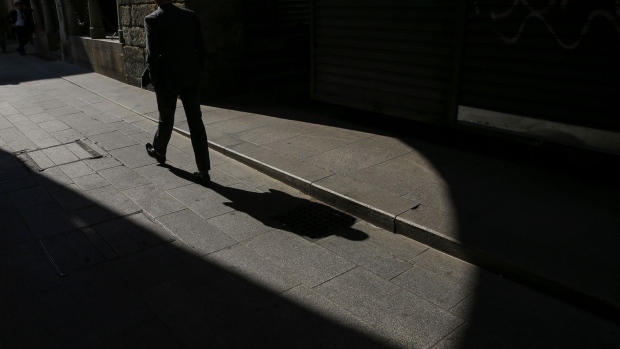Mar 20, 2020
London Bankers’ Tax Scandal Verdict Shows That Inexperience Pays Off
, Bloomberg News

(Bloomberg) -- In the first landmark trial investigating dividend tax trades in Germany, the two defendants’ gamble to cooperate with authorities paid off because it kept them out of jail. But the junior ex-banker played another card: that he was simply too inexperienced to know that what he did was illegal.
While Martin Shields and Nicholas Diable were convicted of tax evasion for arranging complex stock sales that cheated the government out of revenue, Diable was cleared of half the charges. These covered the first two years under review in the case, which charged the two men with tax evasion amounting to 400-million euro ($432 million).
That part of the verdict is likely to raise the hopes for many of the remaining 600-odd suspects still being probed. Most of those targeted won’t be able to collaborate with authorities to the same extent that the duo on trial in Bonn did. So to chart a path to freedom, they would instead need to show that they were similarly young and inexperienced as Diable.
Shields and Diable are the first two investment bankers who stood trial over the controversial tax strategy. The court in Bonn late Wednesday night convicted them, but spared them time in jail in light of their cooperation with prosecutors. They were charged for deals enacted between 2007 and early 2011, though Diable was acquitted for trades he worked on in 2007 and 2008.
Cum-Ex transactions took advantage of a now-abandoned method of taxing dividends, which was abused to get multiple refunds through a combination of short sales and other transactions. The practice ended in 2012 when Germany revised its rules, but Cum-Ex may have cost taxpayers more than 10 billion euros in total, lawmakers estimated.
While Shields always accepted his role in the trades, Cum-Ex required participation from many players. Diable, for his part, laid out how he never played a central role and was in fact occasionally sidelined as a junior participant in the action.
“They were only two actors in a cast of hundreds, if not thousands, involved in the Cum-Ex process,” said Nick Barnard, senior associate at law firm Corker Binning in London. “Every tax reclaim was the end product of a long chain of transactions, each involving a facilitating institution, many of whom are household names.”
Prosecutors in Cologne said they will appeal the entire verdict. After the court issued its ruling late on March 18 -- much sooner than previously planned as the coronavirus pandemic upended schedules everywhere, prosecutors monitoring the case seized on the verdict, saying it will initiate a new wave of new indictments. But the partial acquittal stands to make their case harder, because many other young traders will now invoke the same line of argument as Diable did in his defense.
“Prosecutors won’t accept these partial acquittals, given all the work they have put in the probe,” said Anouschka Velke, Frankfurt-based defense attorney. “Cum-Ex isn’t as simple as prosecutors try to make it seem.”
The 40-year-old Diable also isn’t happy with the ruling and will appeal the convictions, his lawyer, Stefan Kirsch, said.
©2020 Bloomberg L.P.